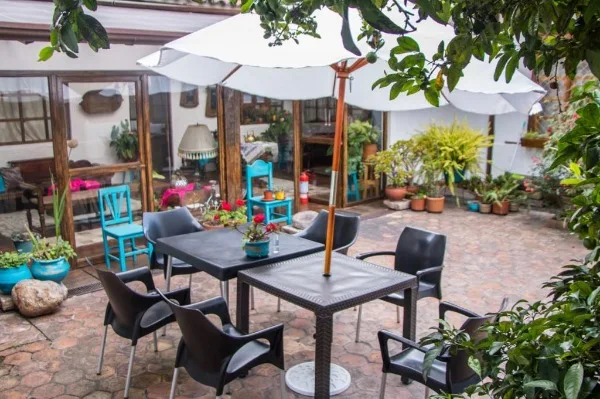The ‘most important issue’ in the election is not who will be president; It’s the Yasuní referendum
“It’s the most important issue on the ballot,” says environmentalist David Fajardo, referring to the referendum question that could end oil production in Yasuní National Park.

Both sides of the Yasuní referendum question agree it is the most important issue on Sunday’s ballot.
“All the attention is on the presidential race, but the Yasuní question will ultimately have a much bigger impact,” he says. “The people elected Sunday will only be in office for a year-and-a-half and won’t have time to accomplish very much. A ‘yes’ vote on Yasuní will positively affect Ecuadorians for generations to come.”
Patricio Vargas, president of the Azuay Chamber of Mining and a leader of the Yasuní “no” vote campaign, agrees with Fajardo on the importance of the referendum. “This consultation is huge,” he says. “I regret that all the election attention is on the presidency and Assembly since the answer to the Yasuní question will determine the country’s future. A ‘yes’ will set Ecuador back by decades, depriving us of the income we need to move forward.”
The Yasuní question voters will answer Sunday is simple. “Do you agree that the Ecuadorian government should keep ITT crude, known as block 43, indefinitely in the ground?”
ITT block 43 is the area of Yasuní National Park in Ecuador’s Amazon jungle where oil production is currently underway.
Fajardo, a leader of the Yasunidos environmental group, says a “yes” vote is not only a vote for a healthy future for Ecuador but for the world. “Most important, it is a way to fight against the climate crisis and degradation of the Amazon, which is crucial for the planet’s health. It is also important to preserve the most biodiverse region in the world, a region that has supplied clean water to indigenous communities for thousands of years.”
Fajardo dismisses opponents claims that ending oil operations in the Yasuní will impoverish the country. “They say it will cost the government $1.3 billion a year but this is an unrealistic number. Because of pipeline breaks and protests, the income last year from Yasuní was less than $400 million, probably much less.”
More important for Fajardo and the Yasunidos is the fact that a “yes” vote will force the government to look for new revenue sources. “We cannot continue to rely on non-renewable resources to fund public spending. The taxation system must be redesigned for the future, not counting of extraction activities like oil and mining that damage the environment and that have a limited lifespan of payouts.”
Fajardo continues: “If the government had not defrauded voters of their right to decide on Yasuní 10 years ago, there would be no discussion today about lost revenue. We collected the necessary signatures to put it on the ballot in 2014 but the illegal actions of the Rafael Correa government denied the referendum.”
Vargas does not dispute Fajardo’s claim that voters should have had the opportunity to decide the Yasuní question a decade ago but says now is not the time to “rehash” history. “It is an indisputable fact that Ecuador depends on that income and future income from block 43,” he says. “It is also indisputable that the operations in the Yasuní are among the most environmentally sensitive anywhere in the world. We have been praised by international organizations for the precautions we have taken to preserve water quality and to protect the flora and fauna.”
Vargas also claims that stopping oil production will have the opposite effect of the one environmentalists want. “If you stop extracting there, loggers and squatters will enter and begin activities that will cause far worse damage. The government does not have the capacity to protect Yasuní, so in a short time it will be polluted by other activities.”
According to Vargas, it is “unrealistic” for the country to find other income sources within a matter of months. “We don’t disagree that changes should be made to the taxation system, but this will take time, maybe years, and in the meantime, we desperately need the income that oil provides.”
Vargas also worries about the message a “yes” will send to the world. “We will be announcing that Ecuador is closed for business. We will be saying, don’t bother to invest here. A “yes” outcome will not only stop oil and mining interests from investing in Ecuador but other commercial concerns as well.”
He adds: “Given our current financial crisis, a ‘yes’ vote on Yasuní could be a disaster for Ecuador.”





















